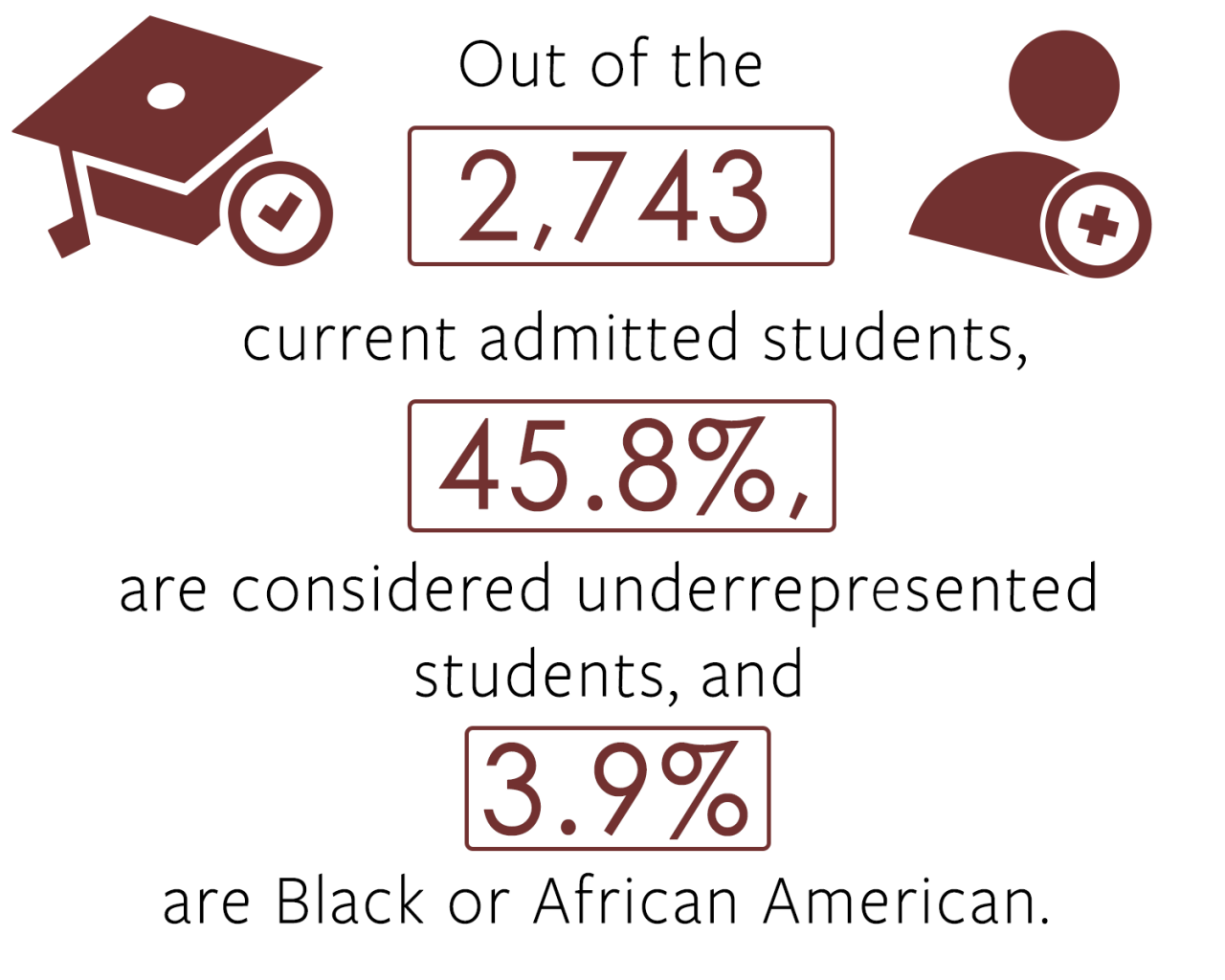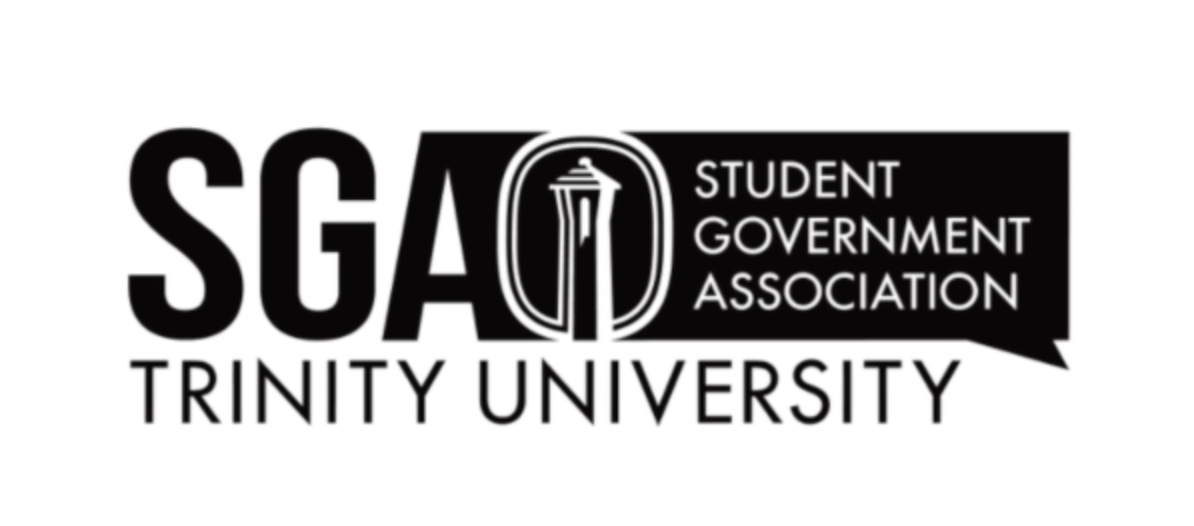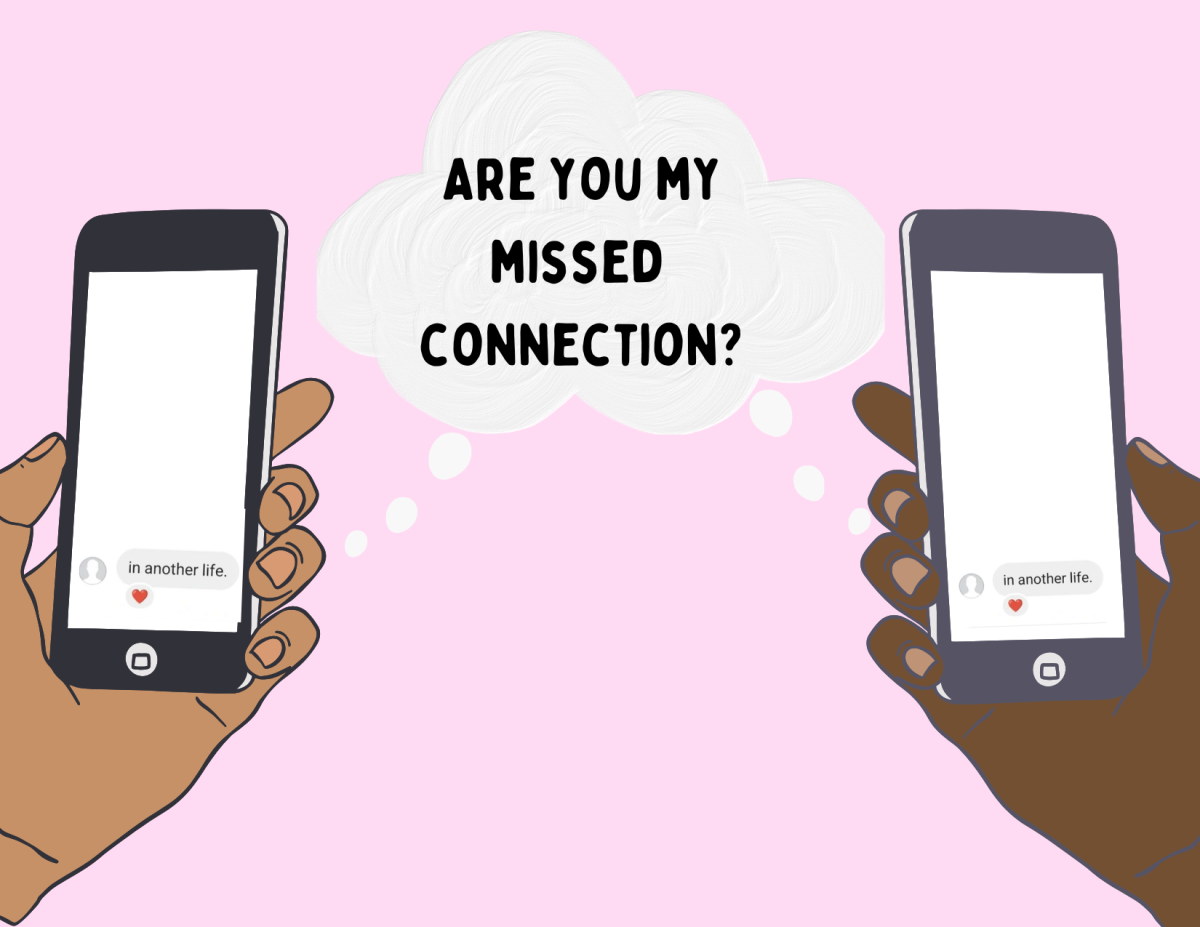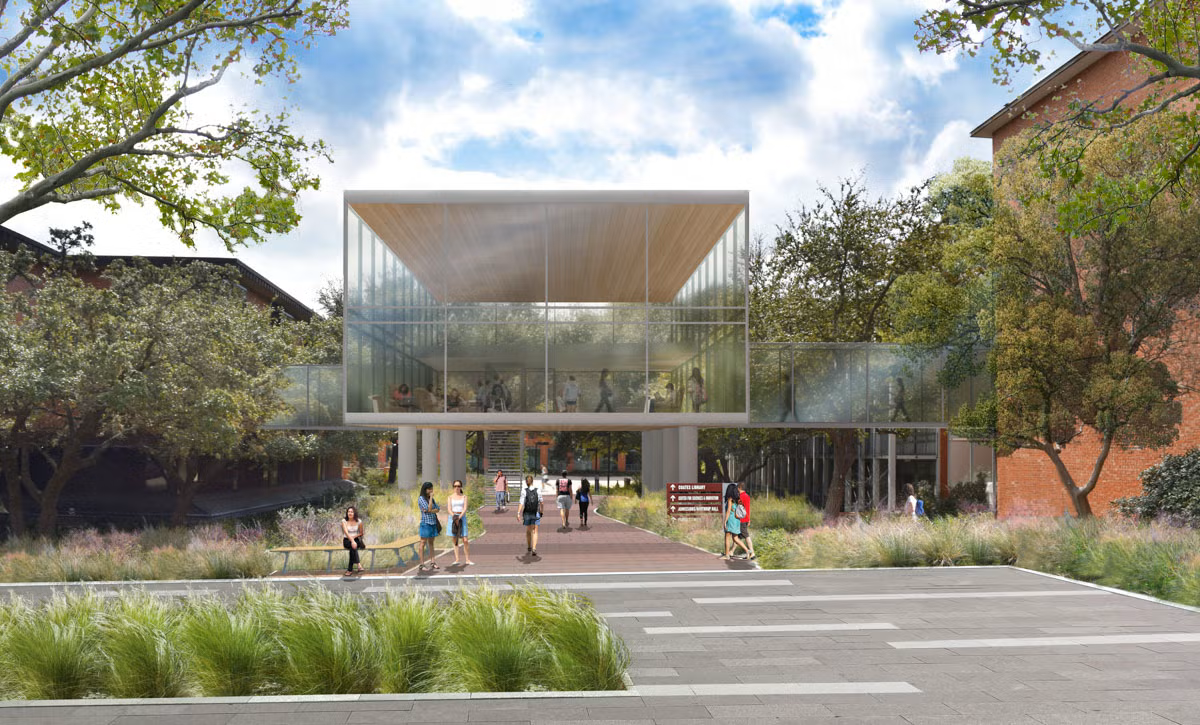Graphic by Alexandra Parris
Out of 2,740 students who have been admitted to the class of 2023, the percentage of admitted students from underrepresented backgrounds is 45.8 percent, which is almost identical to last year’s percentage. The percentage of students admitted who identify as African American or black is 3.9 percent this year, compared to 3.6 percent last year and 4.4 percent the year before. The Office of Admissions has been specifically trying to increase their efforts to ensure that African American students will attend Trinity in the fall.
There has been a decrease in the number of underrepresented students admitted, but this has not affected the percentage.
“Because we ended up accepting fewer students, you’re seeing a little bit of a decrease in the raw numbers, but percentages have stayed about the same,” said Justin Doty, dean of Admissions. “One of the populations we’ve been pretty focused on is African American students. There’s a nice application bump. We ended up pretty consistent as far as the acceptances this year, a little bit higher in percentage but barely.”
Jeremy Boyce, associate director of Admissions, explained that African American students often need to be encouraged to apply in a unique way.
“If we aren’t putting in that effort to go after those students, then we’re going to lose because other schools are putting in the effort,” Boyce said. “We honestly weren’t really putting in the effort to go after African American students any differently than we go after everyone else. So we’ve put some initiatives in place this year to try and do that. This year we’re going to focus on yielding those students who have been accepted to make sure that they do come.”
One of the new ways in which the Office of Admissions is encouraging African American students to apply is through the Tiger PRIDE (Promoting Real Inclusivity, Diversity and Excellence) program, which hosted its inaugural admissions event from March 21 to 23 in combination with the Tiger Friday campus visit program for admitted students. The Tiger PRIDE admissions event focused on issues surrounding diversity on campus. All admitted African American students were invited to the event, and 24 were able to attend. Transportation to campus for these students was paid for by the university.
“The program is set up to allow us to be able to focus on areas where we need to improve as a university as far as diversity goes,” Boyce said. “This year, we’re targeting African American students. It’s an opportunity for them to come down together, experience this together, interact with the students, find out what it’s really like to be a minority here on this campus and connect with the students who are going through it, connect with faculty who are supportive in that area and experience all that Trinity has to offer during our Tiger Friday program.”
The 24 students who attended the event were hosted overnight by current Trinity students and had the opportunity to attend meals and socials where they were able to meet and talk with current students, faculty and staff. One of the speakers for this admissions event was Alli Roman, director of the Diversity and Inclusion Office.
“I think this program was something that really fit with the mission of my department, which is to serve underrepresented and historically marginalized students and really provide that community,” Roman said. “I also advise the Black Student Union, so having that connection with those students to help them build those relationships with these prospective students as well is really important.”
Roman expressed why she believes that an event like this one is important for individuals who have been admitted to Trinity but are not experiencing student life on campus.
“For some of the students, they’re traveling very far away from out of state, they probably don’t know anyone in Texas, they probably don’t know anyone at Trinity, so to be able to come to a new place and already have started building that community before you even step foot as a student I think is a great start,” Roman said. “What I hear a lot from students is feelings of being alone and feelings of people not understanding them and things like that. Starting that community early is crucial before they even get here because they’re more likely to stay.”





